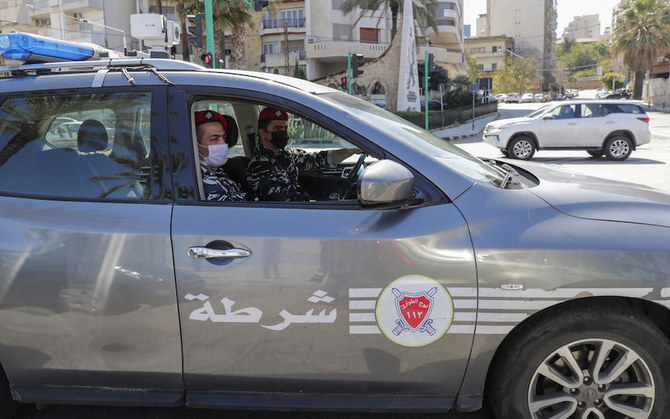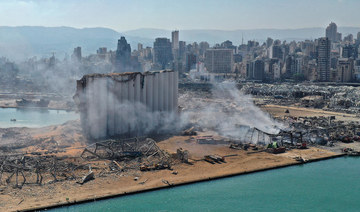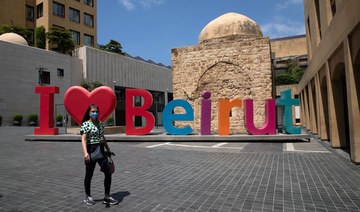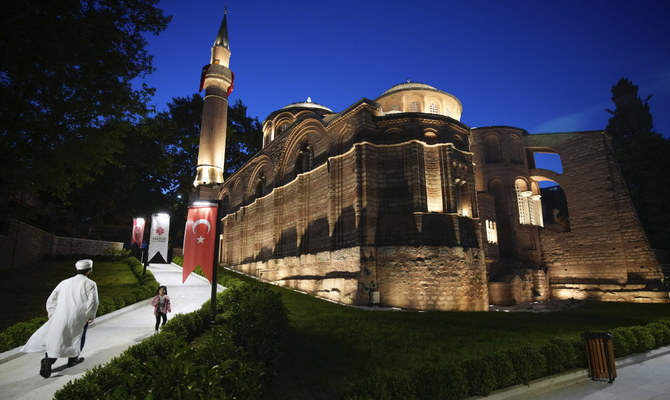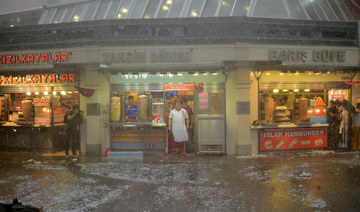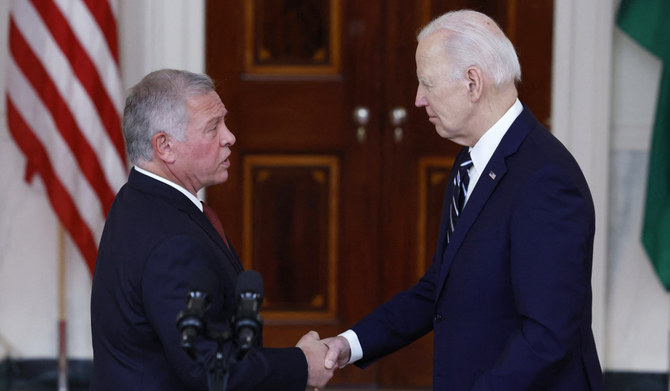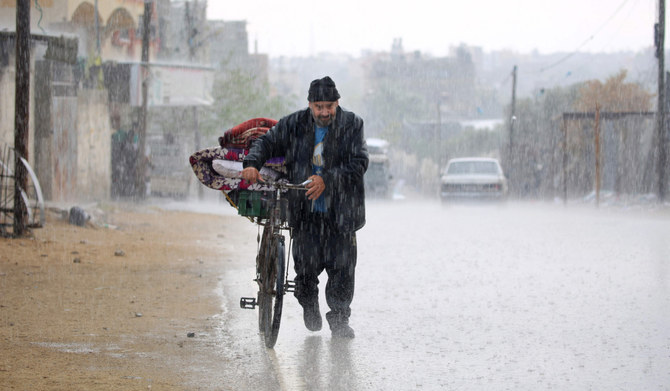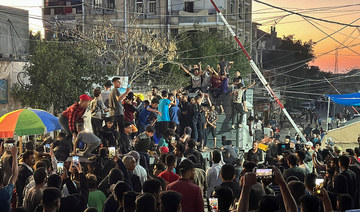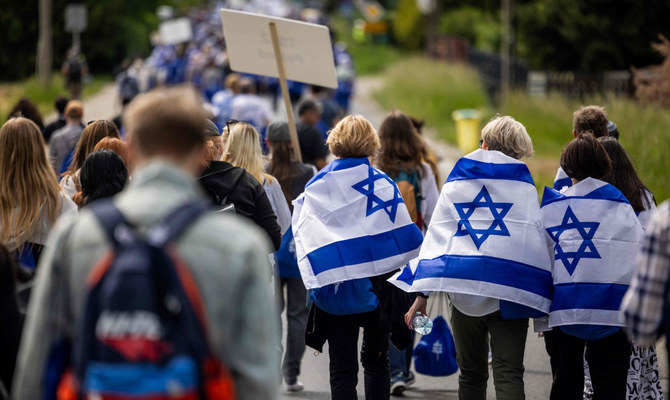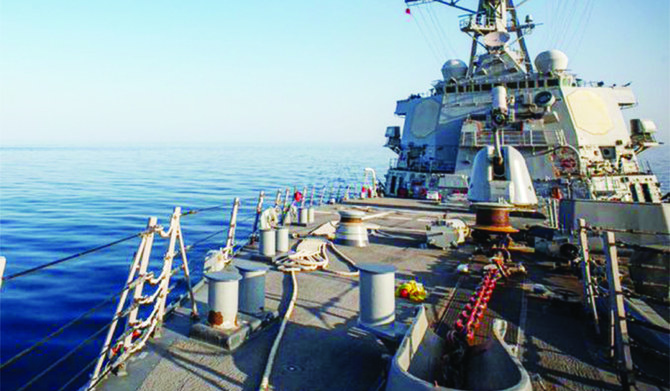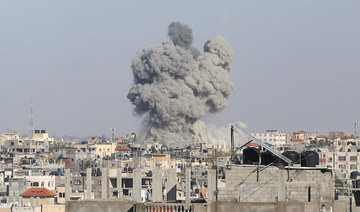BEIRUT: The Lebanese footballer Mohammed Atwi is in intensive care at Al-Maqasid Hospital, battling for his life after he was hit in the head by a bullet on Friday, in the Cola district of Beirut.
The incident coincided with the last of the funerals for members of the Beirut Fire Brigade who died in the recent port explosion. Joe Bou Saab’s funeral was taking place in the Ain El-Remmaneh area east of Beirut, as armed men began shooting into the air.
Atwi, 33, had played for Al-Tadhamon Football Club in Tyre, and previously for Al-Ansar FC and Akhaa Ahli Aley FC. He had been driving his motorbike wearing a helmet in the Cola district when he was struck by a stray bullet, causing severe bleeding and a fracture of the skull.
Sources told Arab News that Atwi “needed 16 units of blood, and although he underwent surgery, the bullet was still in his head and doctors could not pull it out because it was in a very critical place behind the ear.”
Atwi was not the only victim that day. A security guard, whose name has not been released, was also hit by a stray bullet in the shoulder in front of an embassy near the Cola area, and underwent surgery. He is in stable condition.
In recent years, there has been a campaign to stop shooting in the air during funeral ceremonies, when political leaders appear on television, at weddings, and even to celebrate passing a high school diploma. There were 147 victims (including 45 fatalities) as a result of stray bullets between 2013 and 2019 in Lebanon.
Often, Lebanese people also resort to settling disputes by using weapons, but in the past two days, it seems the use of firearms has escalated.
Tension between supporters of the Amal Movement and supporters of Hezbollah, against the background of raising religious tension, has led to gunfire, resulting in the injuring of four people, one of whom, Hussein Khalil, died later from his wounds. During his funeral, there were chants against the secretary-general of Hezbollah, Hassan Nasrallah, describing him as an “enemy of God.”
In another tragic accident, three people from the town of Kaftoun, in the Koura District, North Lebanon, were killed on Friday night, after unknown assailants shot them while they were guarding their town under the curfew imposed by security forces from 6 p.m. to 6 a.m. due to the outbreak of the coronavirus disease.
HIGHLIGHTS
• Footballer in intensive care after accidentally being hit by stray bullets in Beirut.
• It comes amid increase in firearms usage as political tensions rise.
Alaa Faris, George Sarkis and Fadi Sarkis were killed after an unknown car without license plates with 4 people inside entered the town at night, and when challenged, opened fire. The car was later found abandoned, containing machine guns, pistols, a silencer and a grenade.
The Syrian Social Nationalist Party mourned the three young men and called on the judiciary and security forces to reveal the mysterious circumstances of the crime. The Lebanese Forces denied any connection.
The killings led to violence in the city of Tripoli in North Lebanon, where a quarrel occurred between people in Al-Muhajirin neighborhood in Jabal Mohsen, which has an Alawite majority. Two brothers, Hussein and Ali Al-Bashlawi, were killed. The man accused of their deaths, Mohammed Asi, son of the head of the Alawite Islamic Council, the late Sheikh Asad Asi, later turned himself in.
Dr. Rajaa Makki, a doctor in social and pathological psychology, told Arab News: “The Lebanese society is a society at war, that has not yet emerged from it. There are always crises and contradictions experienced by the Lebanese, and there is an element of surprise and the unexpected. On this basis, Lebanese society remains in a state of vigilance, tension, and its energies are drained. Lebanese citizens are always responsible for their security, in the absence of the controlling, caring and influential state.”
Makki added: “Since last October, Lebanon has been living through unprecedented economic decay and raging popular anger, and experiencing trauma as a result of the explosion that occurred recently in Beirut.
“All of this affects the human psychological system, which is the protective shield, and therefore people try to have balance. But the turbulent periods that the at-war community goes through led to the loss of the protective shield. Therefore, we see that people are tense and suffering loss, so there is no balance to adapt and psychological flexibility disappears.
“The Lebanese praise their country, where they experience the atmosphere of love of life, staying up late and the beauty of the mountains and the sea. But all of this turns into fear and panic because of the ever-present whim of death, he continued. “The ease of life in Lebanon is matched by the ease of losing life, and stray bullets are one of these consequences because the shooter tries to challenge those who want to kill him, so he anticipates danger to himself. It’s kind of unconscious aggression.”



